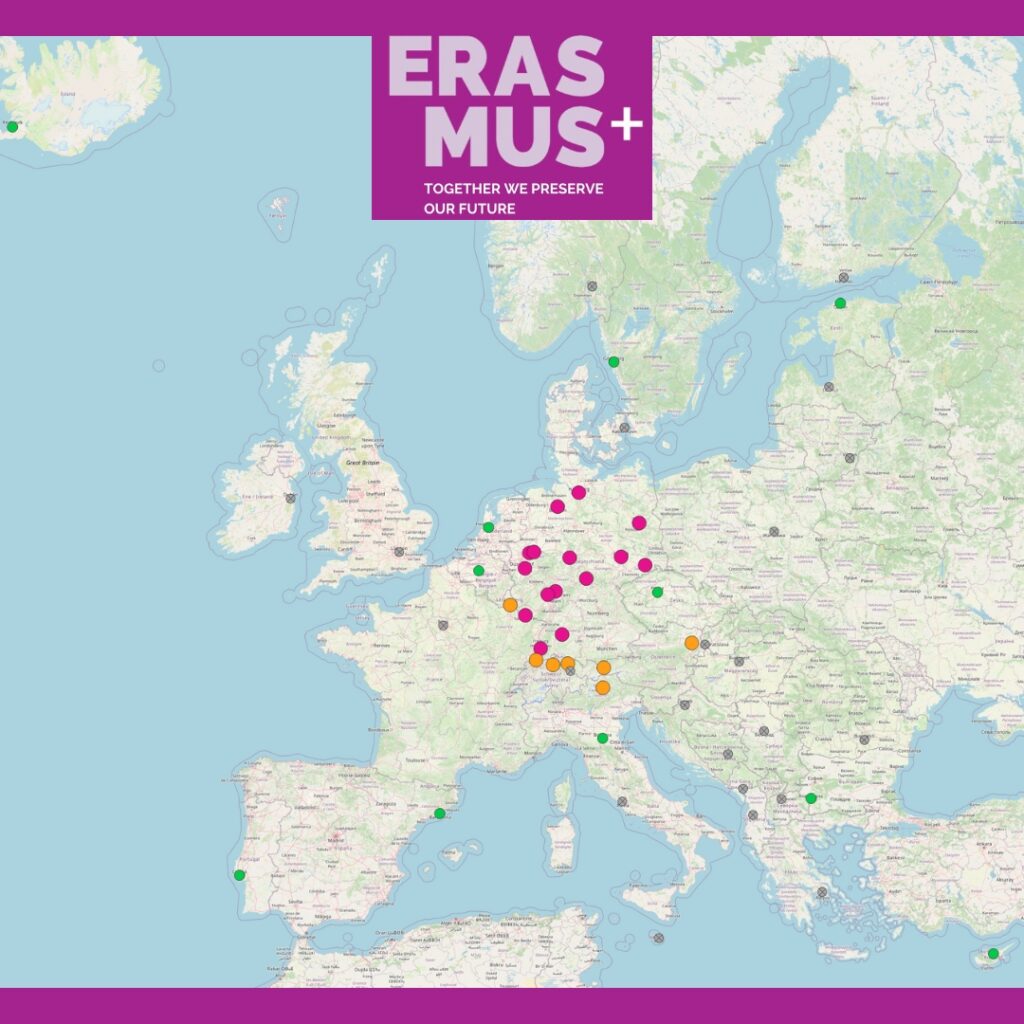TOGETHER WE PRESERVE OUR FUTURE is the first European education project on feminist remembrance
work to be launched by i.d.a. and DDF. From Iceland to Cyprus, it brings feminist archives and
libraries into exchange via the EU programme Erasmus+ and thus promotes equality and diversity in
research and science.
International solidarity and networking has always been a central approach within feminist movements.
They have mutually conditioned, exchanged and inspired each other across national borders. In order to
make this approach visible in current adult education, the i.d.a. umbrella organisation (i.d.a.) has
initiated the project TOGETHER WE PRESERVE OUR FUTURE. For over 30 years, i.d.a., the umbrella
organisation of German-speaking lesbian/women’s archives, libraries and documentation centres, has
been committed to preserving and communicating feminist history and knowledge.
Promoting feminist education
The one-year project with feminist remembrance institutions from 15 European countries will start in
July 2024, financially supported by the EU education programme Erasmus+ and organisationally
accompanied and supported by the Digital German Women’s Archive (Digitales Deutsches Frauenarchiv,
DDF). The focus is on job shadowing and workshops: 30 experts will take part in bi-nationally organised
work shadowing sessions across Europe.
The exchange of expertise promotes dialogue and knowledge transfer and raises awareness of local
conditions: How is knowledge about lesbian and women’s movements collected and preserved in the
countries? How could a unified European search area of specialised cultural heritage institutions and
their intersectional collections contribute to the democratisation of knowledge? And how can these
central sources and data on women’s history, feminism and gender studies be sustainably secured as
part of a common European heritage and opened up to the public? In May 2025, all participating
institutions will come together for a final workshop – a ceremonial event is planned to mark the official
founding of a European specialist network.
Strengthening European networking
The project is therefore embedded in the META-EU initiative launched by the DDF. The aim of this
initiative is to connect feminist remembrance organisations in a European network and to share their
knowledge in a unified database in the future. From Portugal to Estonia, from Iceland to Cyprus:
numerous organisations from currently 15 European countries are already actively participating in the
initiative and are also involved in the Erasmus+ project.
“The Erasmus+ project offers the i.d.a. the unique opportunity to deepen our networking beyond the
German-speaking context and to enable mutual learning in the preservation of feminist history,” says
the i.d.a. board, consisting of Inga Müller (DENKtRÄUME, Hamburg), Margarethe Kees
(FrauenGenderBibliothek Saar, Saarbrücken) and Margit Hauser (STICHWORT, Vienna). “Especially in
these times of a shift to the right and growing anti-feminism, cooperation between feminist projects
needs to be strengthened,” they emphasise.
Sharing experiences of anti-European and anti-democratic developments in many countries can
contribute to the development of joint counter-strategies. The Erasmus+ awarding jury therefore also
emphasised openness, inclusion and democratisation as key objectives of the joint project. These are
particularly “important for the whole of Europe with regard to the current and future situation of
women’s movements”.
Contacts
i.d.a.-Dachverband e.V. c/o DENKtRÄUME, Grindelallee 43, 20146 Hamburg
i.d.a.-Vorstand: Inga Müller, Margarethe Kees, Margit Hauser, vorstand@ida-dachverband.de
Erasmus+ Projekt: Marius Zierold und Nicolli Povijač, erasmus@ida-dachverband.de
META-EU-Initiative: Dr. Karin Aleksander, meta-eu@digitales-deutsches-frauenarchiv.de
DDF-Presse: Steff Urgast, +49 30 23 94 21 77, steff.urgast@digitales-deutsches-frauenarchiv.de
Partners


Funded by the European Union. Views and opinions expressed are however those of the author(s) only and do not necessarily reflect those of the European Union or the European Education and Culture Executive Agency (EACEA). Neither the European Union nor EACEA can be held responsible for them.
